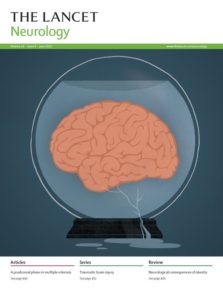Traumatic brain injury (TBI) is a major cause of morbidity and mortality. Concussion, a form of mild TBI, might be associated with long-term neurological symptoms. The effects of TBI and concussion are not restricted to cognition and balance. TBI can also affect multiple aspects of vision; mild TBI frequently leads to disruptions in visual functioning, while moderate or severe TBI often causes structural lesions. In patients with mild TBI, there might be abnormalities in saccades, pursuit, convergence, accommodation, and vestibulo-ocular reflex. Moderate and severe TBI might additionally lead to ocular motor palsies, optic neuropathies, and orbital pathologies. Vision-based testing is vital in the management of all forms of TBI and provides a sensitive approach for sideline or post-injury concussion screening. One sideline test, the King-Devick test, uses rapid number naming and has been tested in multiple athlete cohorts.
Summary Points:
- Areas of the brain that control eye movements are vulnerable to trauma, therefore, mild TBI (or concussions) often lead to visual symptoms and clinical signs, which need specific evaluation.
- Common consequences of mild TBI include deficits in eye movements, executive function, visual attention, and visual memory.
- The K-D Test evaluates eye movements (saccades), attention, and language and provides a sensitive test for concussion screenings.

